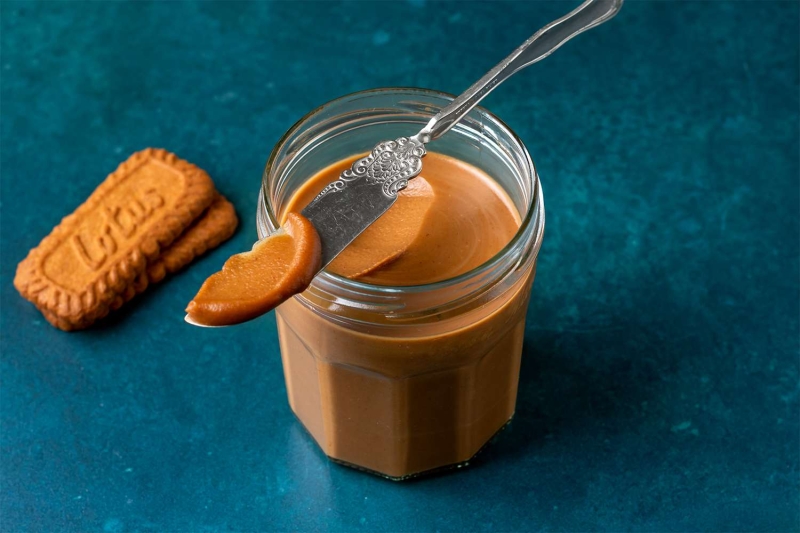What is cookie butter, and how have you lived without it?
Prep: 10 mins
Cook: 0 mins
Chill: 2 hrs
Total: 2 hrs 10 mins
Servings: 16 servings
Yield: 2 cups
Sure, chocolate spread and nut butter are great, but let's talk about the glory of cookie butter. This sweet and smooth goodness takes the spiced flavor of cookies and delivers it in creamy, spreadable form. While you can find it in various supermarkets, it's incredibly easy to make at home with the help of a food processor. Simply process crumbled cookies into a fine powder, then add boiling water. This dissolves the sugar and turns the crumbs into a smooth paste. Coconut oil or butter make it spreadable and creamy, and a little honey helps perk up the flavor.
Try to find ways to not use cookie butter! Spread it on toast, pancakes, waffles, apple slices, on a banana, or use it to sandwich together cookies. Or, straight out of the jar (we won’t judge).
What are Speculoos Cookies?
Cookie butter is typically made using Belgian-style speculoos cookies, like Biscoff. The thin and crispy caramelized biscuits are flavored with brown sugar and spices such as cinnamon, nutmeg, ginger, cloves, or cardamom. This spreadable form of the classic cookies has that signature spiced flavor with a similar texture to peanut butter.
Tips for Terrific Cookie Butter
- Fine & Smooth — For super smooth cookie butter, make sure to process long enough to ensure the cookie crumbs are very fine.
- Thicker — Refined coconut oil produces a slightly thicker spread after chilling than butter, but either work well in this recipe.
- Chill — Be sure to chill before serving. This allows the coconut oil or butter to set up, making the mixture spreadable.
- Make Less — It’s easy to halve this recipe if you’d like to make one cup.
“If you’re a fan of Biscoff cookies, you’re going to love this cookie butter! It’s rich, sweet and creamy and I loved how easy it is to make. You can try this cookie butter in desserts or with some apple slices for a delicious treat!” —Bahareh Niati
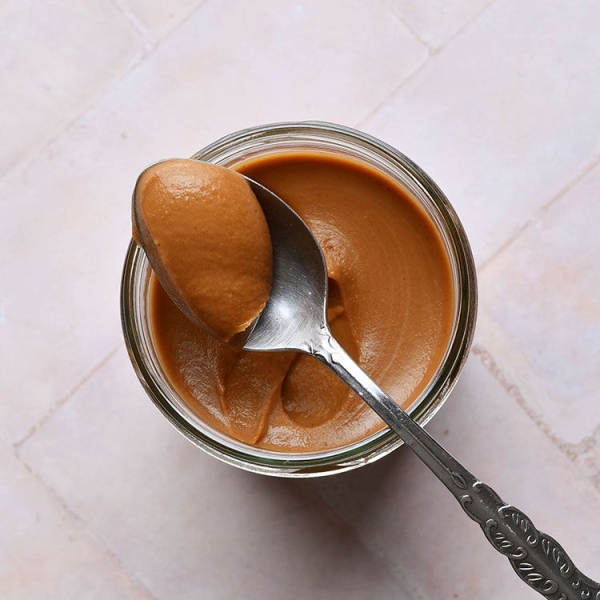
A Note From Our Recipe Tester
Ingredients
-
8 ounces Biscoff or speculoos cookies
-
1 cup boiling water
-
1/4 cup refined coconut oil, or cubed unsalted butter
-
2 tablespoons honey
-
1/4 teaspoon ground cinnamon
-
1 pinch kosher salt
Steps to Make It
-
Gather the ingredients.
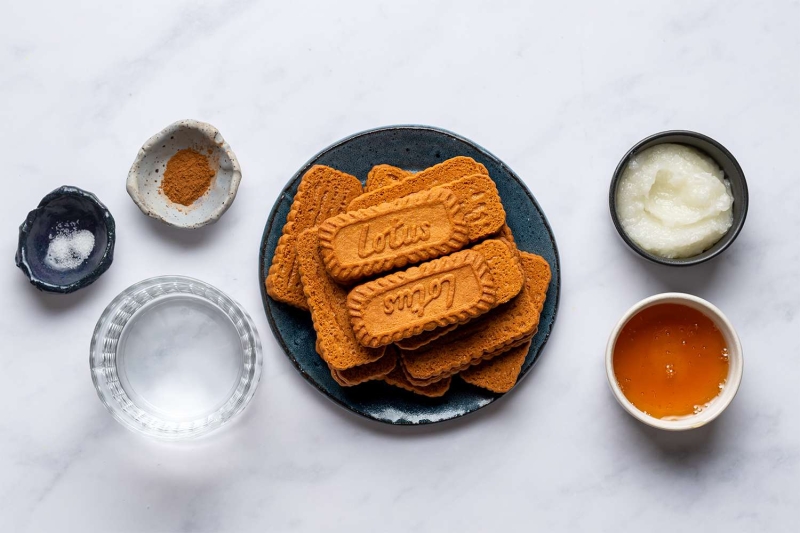
-
Break 8 ounces of cookies up with your hands and place them into a food processor.
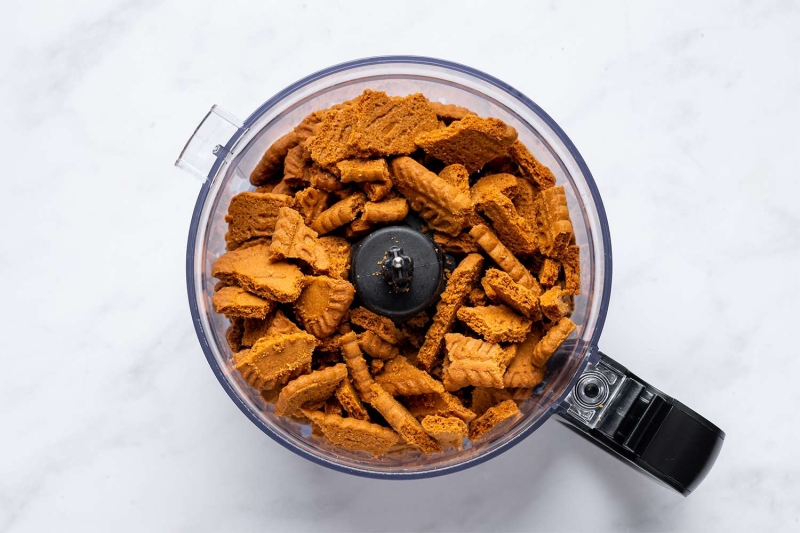
-
Pulse a few times, then process on high until the cookies are fine crumbs.
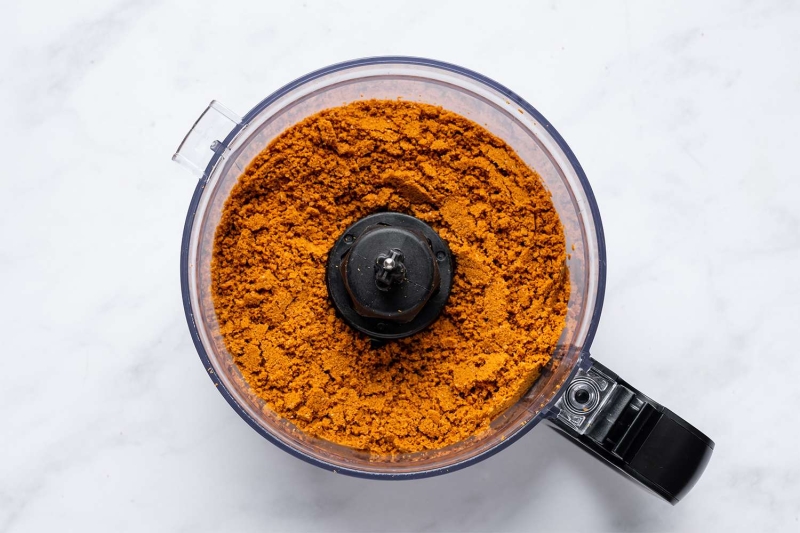
-
Add 1 cup boiling water to the ground cookies and pulse a few times to combine. Scrape down the sides of the processor bowl with a rubber spatula.
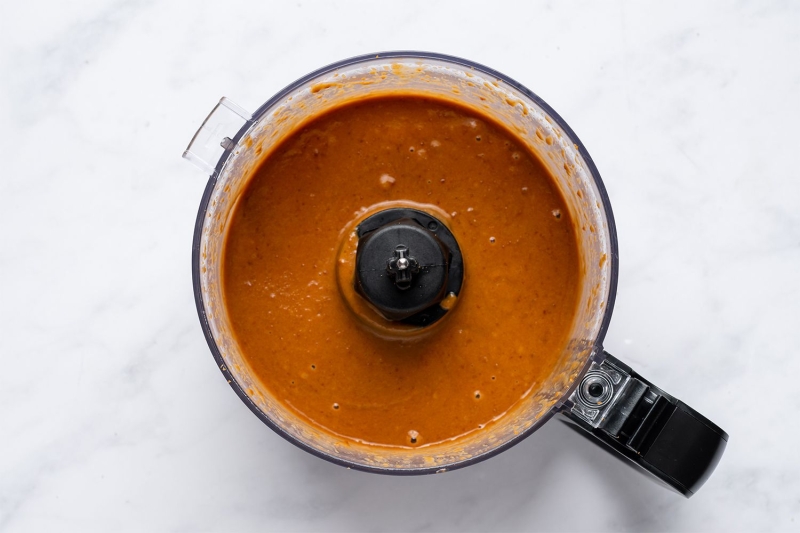
-
Add 1/4 cup coconut oil or cubed butter, 2 tablespoons honey, 1/4 teaspoon cinnamon, and 1 pinch of salt. Process until smooth and creamy, stopping once or twice to scrape down the sides of the bowl, making sure the mixture is well combined.
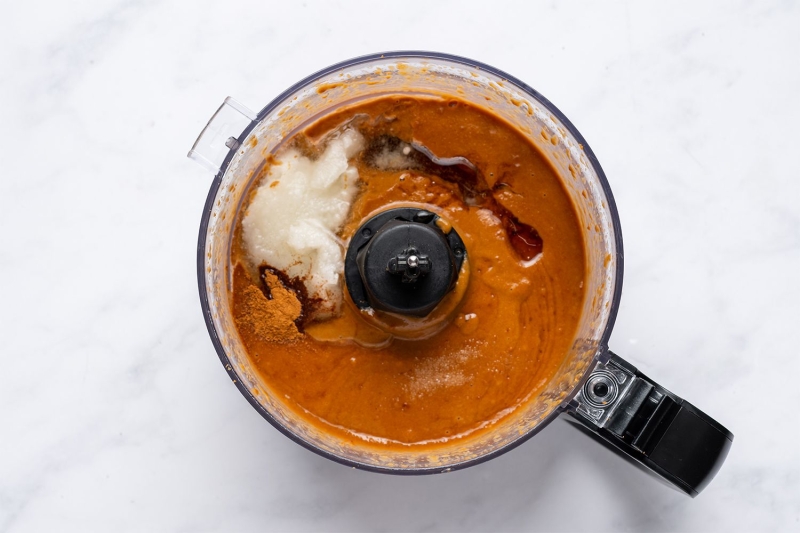
-
Transfer the cookie butter to a pint jar or 2 half-pint jars, with lids. Let chill for at least 1 hour, preferably 2 hours, before serving.
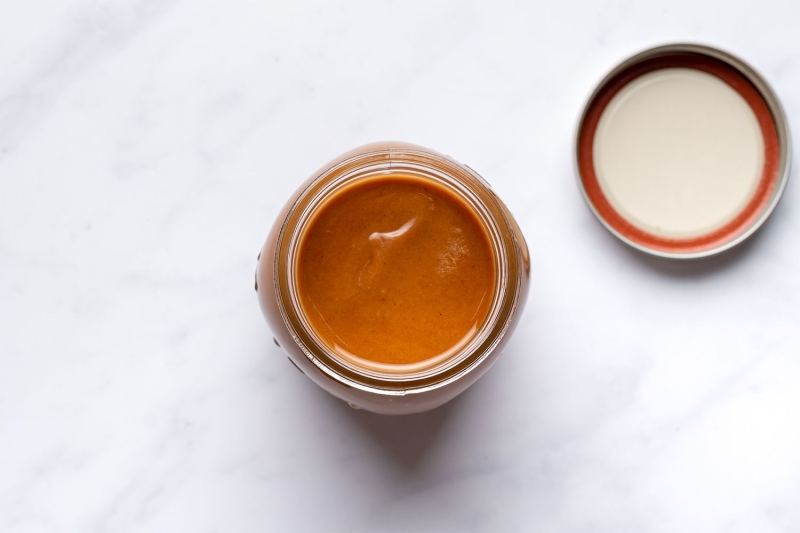
How to Store
- In the Fridge- Homemade cookie butter will keep in an airtight container in the fridge for a week.
- Don't Freeze- We don't recommend freezing cookie butter, since defrosting often breaks the emulsion, causing the oil to separate.
Feeling Adventurous? Try This:
- Spice up this cookie butter by adding more ground cinnamon, allspice, nutmeg, and/or clove.
- Add a splash of vanilla or a little almond extract.
- Swap the honey for molasses for a richer flavor.
- While speculoos cookies are the most traditional for cookie butter, any dry, crunchy cookie that crumbles easily can be used. Gingersnaps are an especially good option, but crunchy sugar cookies and chocolate cookies will also work. Avoid chewy or moist cookies and cookies with chocolate chips or a filling.
How to Use Cookie Butter
Use your homemade cookie butter in recipes that feature the ingredient or swap it for the peanut butter or chocolate-hazelnut spread called for in these recipes:
| Nutrition Facts | |
|---|---|
| Servings: 16 | |
| Amount per serving | |
| Calories | 107 |
| % Daily Value* | |
| Total Fat 7g | 9% |
| Saturated Fat 4g | 18% |
| Cholesterol 5mg | 2% |
| Sodium 54mg | 2% |
| Total Carbohydrate 12g | 4% |
| Dietary Fiber 0g | 1% |
| Total Sugars 6g | |
| Protein 1g | |
| Vitamin C 0mg | 0% |
| Calcium 14mg | 1% |
| Iron 0mg | 2% |
| Potassium 25mg | 1% |
| *The % Daily Value (DV) tells you how much a nutrient in a food serving contributes to a daily diet. 2,000 calories a day is used for general nutrition advice. | |
